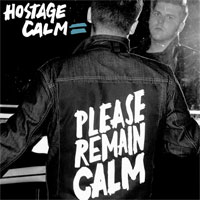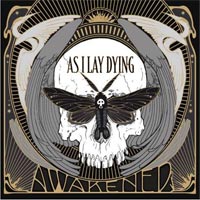
Rumpshaker Zine Issue #6
It’s June 2012 and I’m sprinting back into the house from the mailbox. Heading up the stairs I already start to tear open the envelope and by the time I make it back to my office, it’s not some kind of coveted piece of music in my hands but Rumpshaker #6. I’m a 32 year old hardcore kid beaming over a bound paper zine that last came out about a decade ago. Zine people are zine people.
Eric Weiss’ New York City based zine has never been about quantity (it began in 1994 and yea, Issue #6), but damn does he know how to conduct a good interview. I largely stopped doing band interviews on Pastepunk because I no longer wanted to chase down people and invest the energy in coaxing something meaningful out of them. Weiss’ strategy has long been to only talk to people who were generally comfortable being extroverts, not a terribly common trait in punk and hardcore, and ask them brutally honest questions that were high risk high reward. The most memorable feature of Rumpshaker has been the interviews with ‘legendary’ scene figures and their mothers, which as one might guess, offers mostly unheard of ‘growing up’ background and insight into personality traits and in many ways, the reasons as to why particular people have been so successful in what they have accomplished. In this issue, the “mothers” feature includes interviews with Dan Yemin, Walter Schreifels and Chuck D.
Beyond the bands, Weiss adds color to Rumpshaker through coughing up personal anecdotes, rants, scene-reflective comedy, and generally the things that inspire one to assemble something that’s basically book completed during hobby time. There are no ads in Rumpshaker #6 and no reviews either. The zine drips of New York City passion, storytelling, and musings on a city that has gone through a stunning degree of flux over the past 20 years. Weiss, now in his mid 30s, is vegan, but no longer straight-edge, and the latter point surfaces in a funny story about learning how to order from a bar when you’re 27 (I can relate). Weiss also talks a lot about his obsessive compulsive disorder, which appears to have been triggered from when his older brother died of cancer when Eric was just a teen. There’s no shortage of emotion in Rumpshaker and it filters through virtually every bit of content.
For me, the cornerstone piece in this issue is the incredible two-part interview with Mike Judge. The first part was conducted in 2007 before Revelation put together the awesome JUDGE discography release, and the second part was conducted at a Superbowl of Hardcore show, something Judge said he had no interest in attending years earlier (and Mike Judge still refuses to even entertain the notion of playing JUDGE songs again live). The interview indirectly raises a killer question – what is it like to be Mike Judge, this almost mythical like character where people possibly care more about your band’s legacy and impact than you do?
An interview with Bridge Nine owner Chris Wrenn examines the torch-bearing position of the label in hardcore (not his self-described words, Chris is far too modest to suggest that), and also the fine line it straddles in flirting with commercial success and the greater resources required to make the leap (and the occasionally subsequent crash when a band leaves the label holding the bag). From a totally opposite corner is the piece with Tim Barry, conducted several years ago when he was living in a shed without running water. Barry’s alcoholism and anxiety issues create more than one uncomfortable moment. Interviews with CEREMONY, FUCKED UP, and SICK OF IT ALL similarly dig deep into band member idiosyncrasies. After reading the lengthy two-part piece with Damian of FUCKED UP, which was conducted pre-and-post Pitchfork darling fanfare, I felt compelled to personally conclude that he’s not a very endearing figure, full of contradictions and strange rationalizations. When was the last time you read a band interview that challenged your assumptions of what you think a band or band member might be like?
A good zine isn’t objective. The zines that most shaped my outlook on music, life, etc., Punk Planet, Law of Inertia, Muddle, and Jaded in Chicago, to name just a few, were the ones where you couldn’t divest the personality and opinions of the writers from the foundation of the content. When you do a zine, it’s a huge ego thing in many respects, mostly because you are the kind of person that verbally or in written form, simply cannot shut up. You’re involved because you want to talk about your opinions, revelations and experiences and the goal is to translate all of that into something that can be enjoyed by others in a particular niche. Weiss has done this brilliantly in Rumpshaker for all of its existence and once you start reading Issue #6, you won’t want to put it down.



